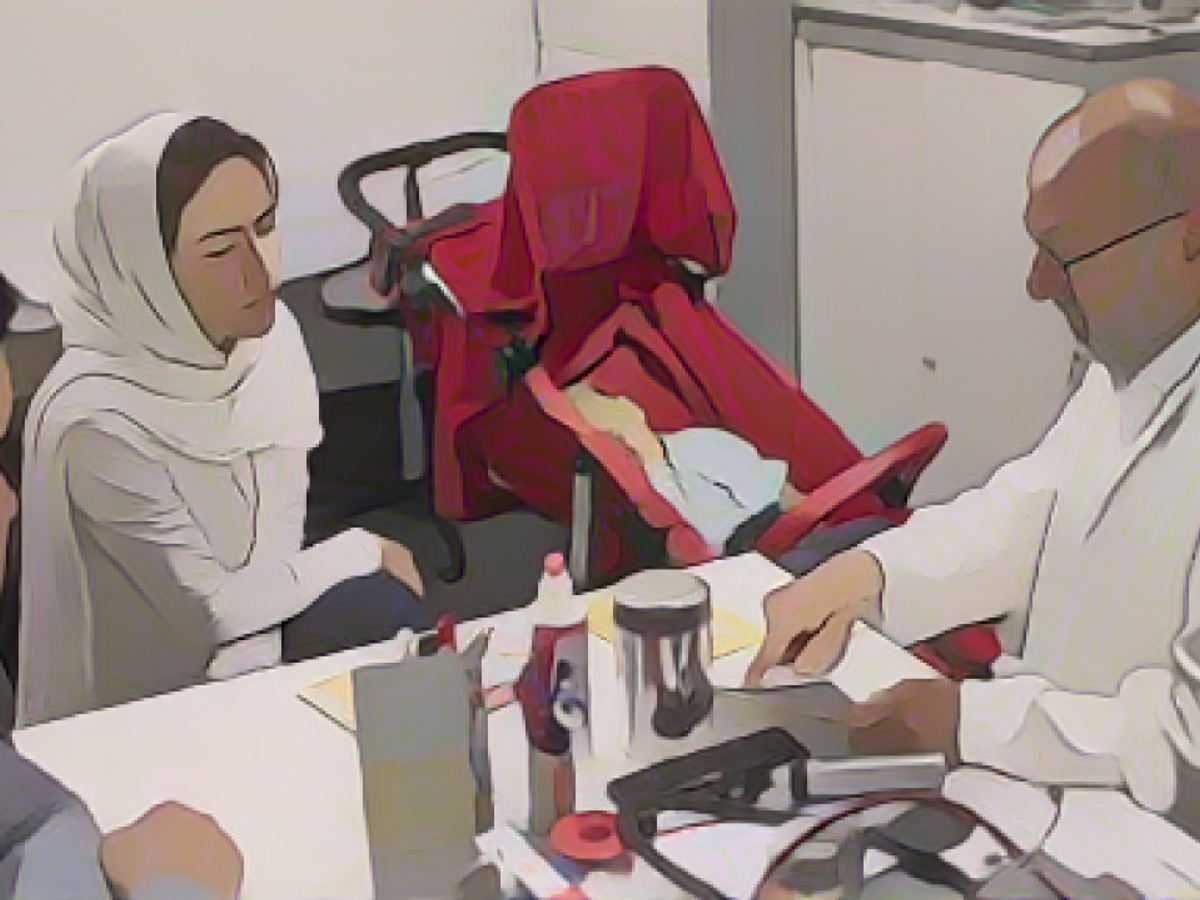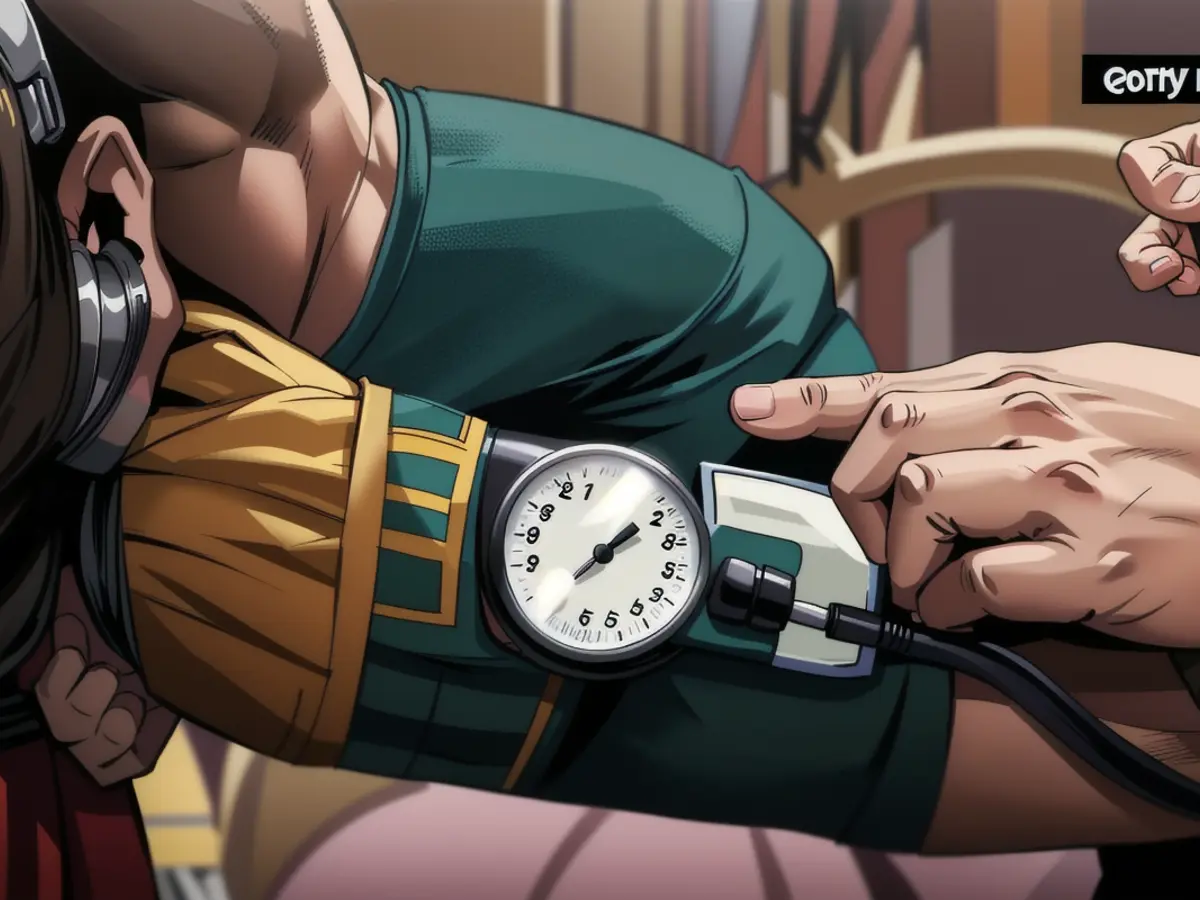Healthcare for refugees
All people in Germany have a right to basic medical care. However, the scope of the healthcare to which you are entitled and your access to medical treatment depend on your status and the duration of your stay in Germany.
Refugees with a residence permit are usually regular members of a health insurance fund and are therefore entitled to all the regular benefits of your health insurance fund. You can find out more about this topic in our chapter "Health insurance".
Refugees who receive benefits under the Asylum Seekers Benefits Act also receive health care in accordance with the AsylbLG. This means that the scope of medical services for them is sometimes limited and access to medical care is usually via the responsible authorities. If you are still in the asylum procedure or have a tolerated stay permit or a border crossing certificate, you belong to this group. In this group, a distinction is made between two scenarios: 1. people who have been in Germany for less than 18 months and 2. people who have been in Germany for more than 18 months.
What does medical care look like for me?
I have been in Germany for less than 18 months
Asylum seekers and people with tolerated stay permits who have been in Germany for less than 18 months are only entitled to emergency health care. This means that they only receive medical treatment for acute illnesses. Treatment for chronic illnesses is usually not covered. Exceptions apply to pregnant women, who have access to all the usual medical services for pregnancy and childbirth in Germany. In addition, everyone has the opportunity to be vaccinated.
If you have been in Germany for less than 18 months, you must generally apply for a sickness certificate from the relevant authority before every visit to the doctor. In concrete terms, this means that you will either receive several sickness certificates every three months from your initial reception center or your case worker at the social welfare office or, if you fall ill, you must first pick up a sickness certificate from your initial reception center or your case worker before you can go to the doctor's office. Please note that these sickness certificates are only valid for three months. After these three months, you must obtain a new sickness certificate.
Instead of the bureaucratically complex system with the sickness certificates, individual federal states / municipalities distribute so-called health cards to asylum seekers and tolerated persons. With this health card, you can go directly to the doctor's surgery without having to go through the authorities. However, the following still applies: you are only entitled to emergency treatment. The only advantage of the health card is that there is less bureaucracy for everyone involved.
You normally have to collect the medication prescribed by your doctor from a pharmacy yourself. You can choose the pharmacy yourself. As a rule, you do not have to pay for your medication, but simply hand in your prescription at the pharmacy. The pharmacy will then get the money back from the social welfare office. You can find a pharmacy near you on aponet.de.
I have been in Germany for more than 18 months
Asylum seekers and people with tolerated stay permits who have been in Germany for more than 18 months receive a so-called "health card for refugees" throughout Germany. This gives you access to medical care without having to go through the relevant authorities. If you belong to this group, you are entitled to the regular health benefits of statutory health insurance - apart from long-term care insurance benefits. However, you are not a member of a statutory health insurance fund, but merely have a kind of care relationship with it. The health insurance fund then recovers the money from the authorities. You can decide for yourself which statutory health insurance fund will look after you. You can find out which statutory health insurance companies there are and what benefits you are entitled to in our "Health insurance" section. The authorities will take care of the registration for you.
Please note: The "Health Card for Refugees" looks exactly like a normal health insurance card - except for one difference: there is no European Health Insurance Card (EHIC) on the back of the Health Card for Refugees. The data stored on the health card for refugees also differs from the data stored for those with regular health insurance. The health card for refugees contains a special identifier. This allows doctors to recognize that the holders of the card are not regular members of the health insurance company.
How do I find a doctor's practice?
After your arrival in Germany, you will first be accommodated in an initial reception center. A preliminary medical examination will usually take place there and acute illnesses will be treated immediately. If you feel ill, speak to a member of staff on site straight away.
Later, you can go to any doctor who treats more than just private patients. Some doctors only treat patients who have private health insurance. These patients pay the doctor's fees directly to the doctor. Since you are not privately insured yourself, you will have to look for doctors who also or only treat "statutory health insurance patients".
You can search for a doctor's practice near you on the website of the German Medical Association. If you first click on your federal state and then on "Advanced search", you can also search for doctors who speak your language. If you cannot find any doctors who speak your language, you can bring an interpreter with you. If you do not know an interpreter, you can ask the staff at your accommodation or an advice center for help. You can find an advice center near you on the website of the state refugee councils, for example.
There is also a basic vocabulary on the internet for making initial contact so that you can tell the doctors what symptoms you have. Body parts and common illnesses are also listed. There is also a practical questionnaire online with the most important information when visiting a doctor in several languages.
Is psychiatric treatment paid for?
Asylum seekers and people with tolerated status can apply to the social welfare office for the costs of therapy to be covered. Ask a social worker in your accommodation or an advice center for help. You can find an advice center near you on the website of the state refugee councils, for example. If the application is not rejected immediately, an assessment and evaluation will be carried out by doctors appointed by the social welfare office. However, such applications are often rejected because the authorities do not want to pay for therapies for people with uncertain residence status. For this reason, there are free therapy places for people whose psychiatric treatment is not paid for via special treatment centers for refugees. However, it is very difficult to get a place in one of these treatment centers because there are too few of them. You can find the addresses of these treatment centers on the website of the Federal Working Group of Psychosocial Centers for Refugees and Torture Victims.
What can I do if I have no papers?
Even if you are in Germany without papers, you are generally entitled to medical treatment for acute illnesses under the Asylum Seekers' Benefits Act. However, in order to receive this care, you must first obtain a sickness certificate from the social welfare office. Doctors cannot treat you without a medical certificate. The social welfare office will then also inform the foreigners authority about your stay.
However, there are some organizations that provide anonymous medical treatment to undocumented migrants. Help from these organizations is free of charge. Your stay will not be passed on to the social welfare office or the foreigners authority. You can search for such an organization in your area on the website gesundheit-ein-menschenrecht.de. You can also search for anonymous medical help in your area on the Malteser and Medibüros websites.
Please note: Hospitals are not allowed to pass on your data to other people or authorities. So don't be afraid to go to a hospital or call an ambulance in an emergency
What can I do in an emergency?
In acute medical emergencies, you can call the emergency services in German on 112 . The call is free of charge. You can also contact the emergency room in any hospital. You may have to wait a long time in the emergency room.
If a person shows signs of poisoning, you can search for a poison control center near you on kindergesundheit-info.de. The poison control centers are available day and night.
If you want to buy medication outside normal opening hours, you must go to a so-called "emergency pharmacy". You can search for the nearest emergency pharmacy on aponet.de.
Important
Doctors are not allowed to pass on any information about you to other people or authorities without your consent. This is called medical confidentiality.
Source: handbookgermany.de








